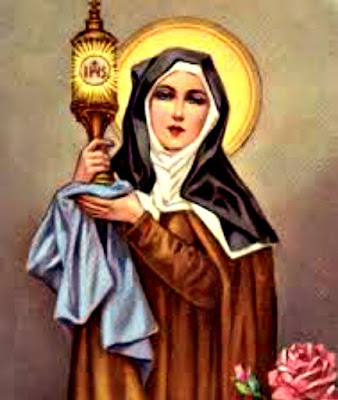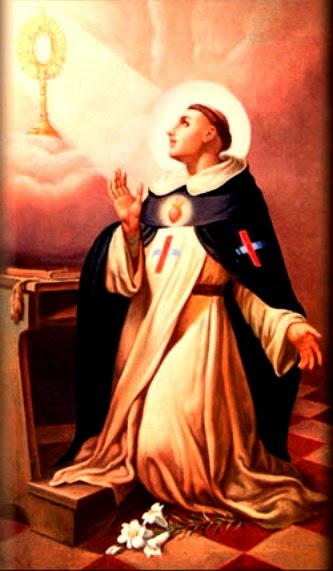St. John Before the Latin Gate

Today we celebrate the "Martyrdom" of St. John. (The feast of St. John before the Latin Gate was on the General Calendar of the Roman Rite before 1962.) According to a tradition mentioned by St. Jerome, which goes back to the second century, when St. John the Apostle was about 80 years old, he was taken to Rome under the Emperor Domitian and plunged into a cauldron of boiling oil; by a striking miracle he came out safe and sound from this torture. A church dedicated in honor of St. John was built near the Latin Gate, the spot referred to by the tradition.
In the year 95, John appeared before the tribunal of pagan Rome. He was convicted of having propagated, in a vast province of the Empire, the worship of a Jew who had been crucified under Pontius Pilate. He was considered a superstitious and rebellious old man, and it was time to rid Asia of his presence. He was, therefore, sentenced to an ignominious and cruel death.
A huge cauldron of boiling oil was prepared in front of the Latin Gate. The sentence ordered that the preacher of Christ be plunged into this bath. The hour had come for the second son of Salome to partake of his Master’s chalice. John’s heart leapt with joy. After cruelly scourging him, the executioners seized the old man, and threw him into the cauldron. But, lo! the boiling liquid lost all its heat; the Apostle felt no scalding. On the contrary, when they took him out again he felt all the vigor of his youthful years restored to him.
The praetor’s cruelty was foiled, and John, a martyr in desire, was to be left to the Church for some few years longer. An imperial decree banished him to the rugged Isle of Patmos, where God revealed to him the future of the Church even to the end of time.
(Excerpted, in part, from The Liturgical Year, Abbot Gueranger O.S.B.)
Reflection
St. John suffered above the other Saints a martyrdom of love, being a martyr, and more than a martyr, at the foot of the cross of his divine Master. All his sufferings were by love and compassion imprinted in his soul, and thus shared by him. O singular happiness, to have stood under the cross of Christ! O extraordinary privilege, to have suffered martyrdom in the person of Jesus, and been eye-witness of all He did or endured! If nature revolt within us against suffering, let us call to mind those words of the divine Master: "Thou knowest not now wherefore; but thou shalt know hereafter."
(Excerpted from Lives of the Saints, by Alban Butler, Benziger Bros. ed. [1894])
Image via Transalpine Redemptorists at home




Comments
Post a Comment
Comments are moderated and are published at the blogger's discretion.